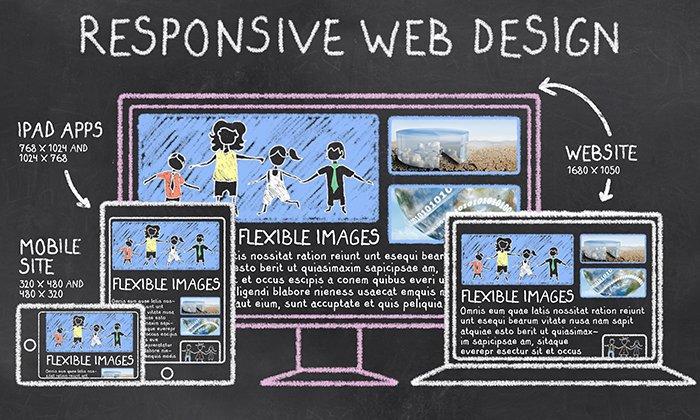Buzz Haven: Your Source for Trending Insights
Stay updated with the latest buzz in news, trends, and lifestyle.
Responsive Web Design: When Your Site Dances to Any Screen Size
Discover how responsive web design makes your site look stunning on any device. Transform your online presence and attract more visitors!
Top 5 Principles of Responsive Web Design You Need to Know
In today’s digital age, responsive web design is paramount for creating websites that provide an optimal viewing experience across a variety of devices. The top principle is fluid grids, which involves using proportions instead of fixed sizes to layout elements. This allows the design to adapt seamlessly to different screen sizes, ensuring that users enjoy a harmonious experience whether they’re on a desktop, tablet, or smartphone. Another vital principle is flexible images; these should resize according to the screen, preventing distortion while retaining visual quality.
Additionally, employing media queries is essential for responsive web design. These CSS elements enable the application of different styles based on the device's characteristics, such as screen width, height, or orientation. Prioritizing mobile-first design—starting with the most challenging screen size and scaling up—ensures that essential elements are accessible on all devices. Lastly, keeping a clear and intuitive navigation structure enhances usability, guiding users effortlessly through your site regardless of their device.

How to Optimize Your Website for Mobile: A Step-by-Step Guide
In today's digital landscape, optimizing your website for mobile is crucial for achieving better user engagement and search engine rankings. A responsive design ensures that your site adapts seamlessly to different screen sizes, providing a pleasant browsing experience. To get started, follow these essential steps:
- Choose a responsive web design framework or theme.
- Test your website's mobile-friendliness using Google's Mobile-Friendly Test tool.
- Optimize images and multimedia for faster loading on mobile devices.
- Reduce clutter and prioritize content to enhance readability and usability.
Once you have established a responsive design, the next step is to improve your site's loading speed, a critical factor for mobile optimization. Consider implementing techniques such as
- minifying CSS and JavaScript files,
- leveraging browser caching, and
- using a content delivery network (CDN) to distribute content efficiently.
Is Your Website Ready for the Future? Exploring the Importance of Responsive Design
In today's digital landscape, ensuring that your website is ready for the future is more critical than ever. With the rapid growth of mobile device usage and varying screen sizes, responsive design has emerged as a fundamental aspect of web development. A responsive website adapts seamlessly to different screen dimensions and orientations, offering users a consistent experience across devices. As we look towards the future, embracing responsive design is essential to cater to the diverse ways people access the internet.
Moreover, search engines like Google prioritize websites that utilize responsive design due to their ability to enhance user experience. This not only benefits your site's visibility but also plays a significant role in retaining visitors. Here are a few reasons why responsive design is crucial for the future of your website:
- Improved SEO rankings due to mobile-friendliness.
- Increased user engagement, as visitors tend to stay longer on user-friendly sites.
- Reduced maintenance costs, since a single responsive site is easier to manage than multiple versions.